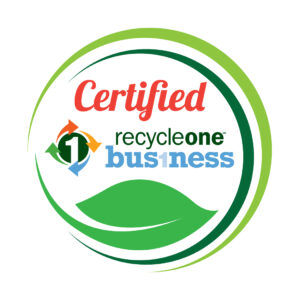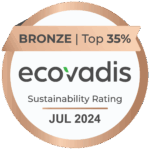May 24, 2022
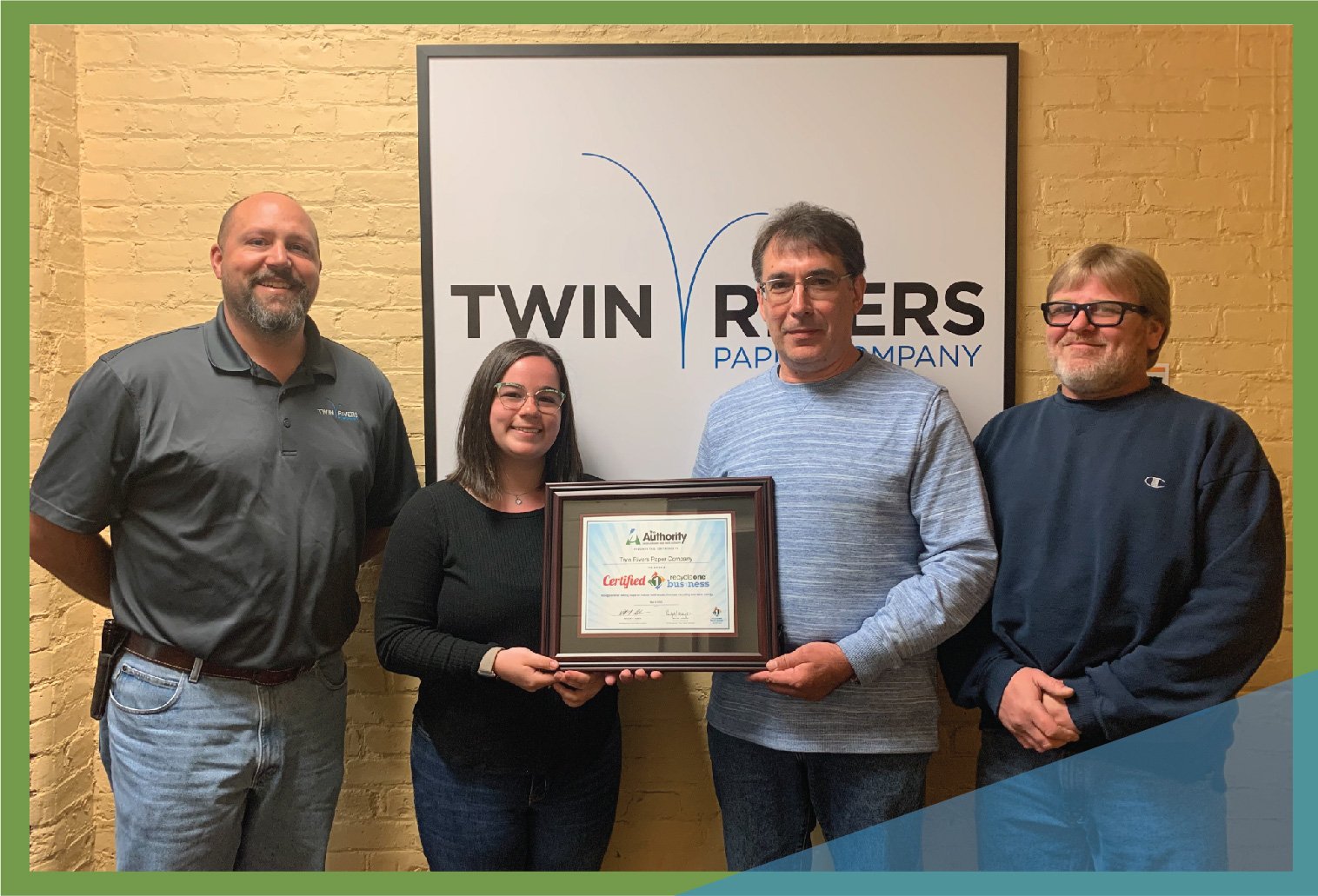
Left to right: John Bates, Twin Rivers Paper Director of New York Operations; Eileen Brinck, Recycling Coordinator – OHSWA; Rick Petrie, Environmental Supervisor, Twin Rivers Paper; and Jason Waseleski, Corporate Maintenance Supervisor, Twin Rivers Paper
The saying “teamwork makes the dream work,” definitely applies to the RecycleOne Business Certification our Little Falls, NY, mills recently received from the Oneida-Herkimer Solid Waste Authority (OHSWA). The recognition was earned by team members at our Mohawk Valley and Mill Street papermaking facilities for their development and implementation of initiatives that achieve specific solid waste management, recycling and energy reduction criteria set forth by OHSWA.
Director of New York Operations John Bates pictured above stated he was proud to accept the OHSWA certification on behalf of the New York crew members. “All credit for this fantastic achievement goes to the operations and environmental team members at Mill Street and Mohawk Valley,” said Bates. “It’s a true reflection of each person’s dedicated focus on making high-quality products efficiently while being responsible stewards of the environment and the beautiful natural resources that surround our mills. We also applaud and appreciate all OHSWA does in their mission to preserve the environment through waste recovery and disposal.”
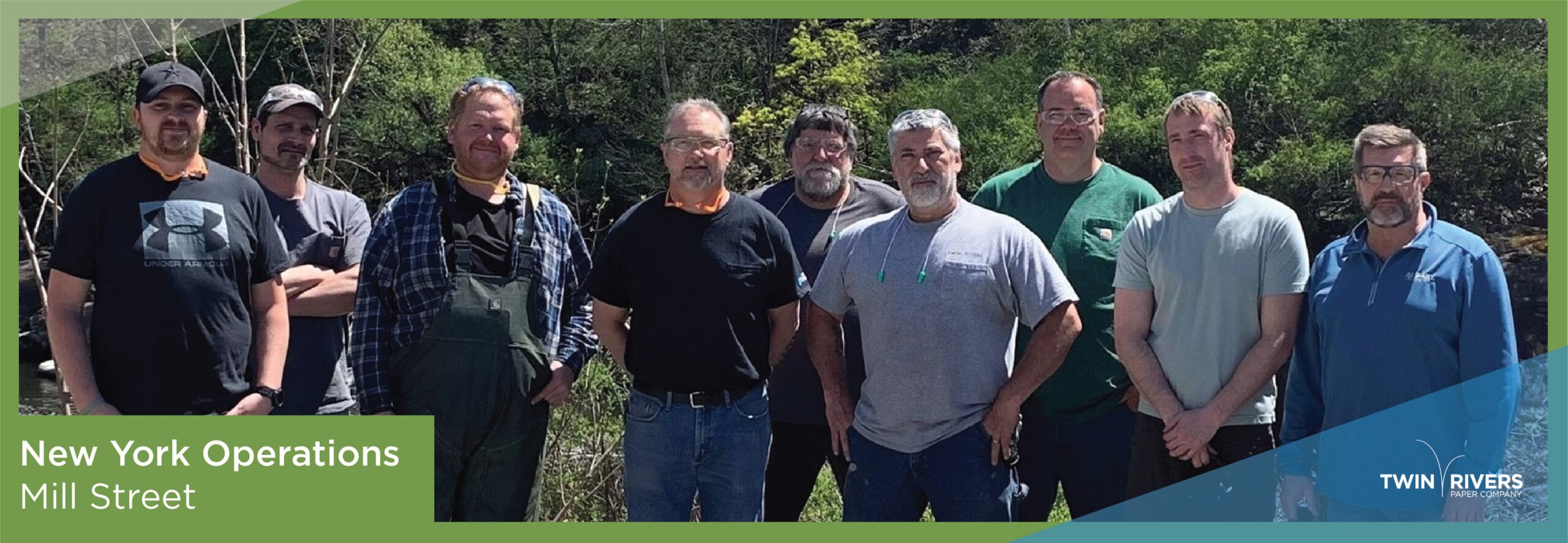
Left to right: Matt Sohns, Dave Green, Al Weaver Jr., Don Tenney, Roger William, Art Wilks, Jeremy Smithson, Dan Daley, and Bill Carrig Not pictured: Sam Melikian, Ron Cady, and Brian Rohacek
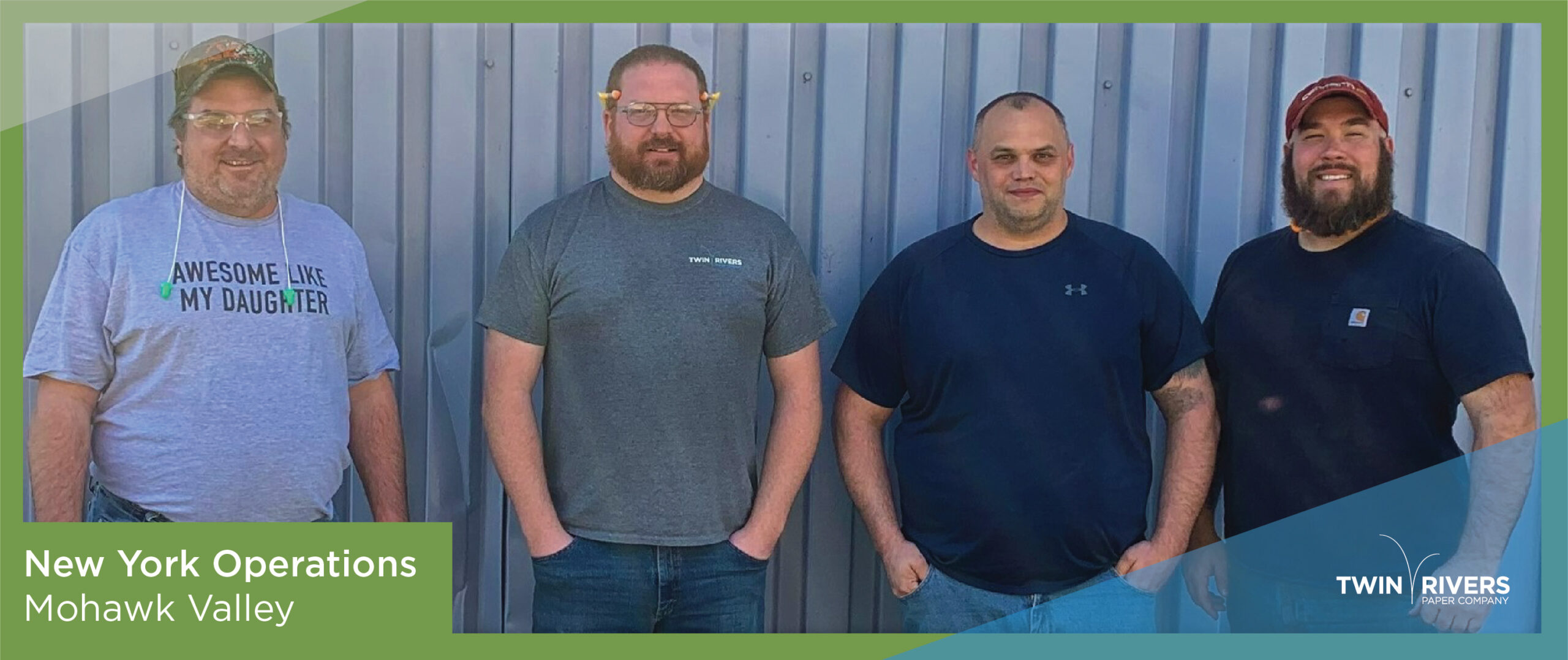
Left to right: Pat O’Connor, Chris Swift, Bill Pope, and Mike Treadwell
Not pictured: Don Palmer, Adam Sewar, Steve McCumber, and Tony Beopple
“Twin Rivers Paper is honored to be part of the RecycleOne Business program and we greatly appreciate OHSWA’s partnership and support throughout the process,” stated Twin Rivers Environmental Supervisor Rick Petrie. “The RecycleOne Certification reflects our company’s steadfast environmental commitment and the daily focus of our team members on recycling and reducing waste. We’re pleased to know that our efforts benefit Twin Rivers, our customers and our local community.”
Twin Rivers’ Waste Reduction Efforts as featured in OHSWA’s press release:
- Hazardous Waste – Batteries, lightbulbs and other hazardous wastes that Twin Rivers Paper generates are all properly disposed of through the appropriate channels. Twin Rivers Paper began the process of switching from fluorescent light bulbs to LED lightbulbs in 2016. Before this switch, the two mills in Little Falls would recycle approximately 800 fluorescent bulbs in one year. Since the switch in 2016, less than 75 fluorescent bulbs are generated as waste per year and less than 20 LED bulbs have been replaced overall. This switch has resulted in greater energy efficiency and a decreased need for frequent lightbulb collection and disposal.
- Water Usage – Water from the Mohawk River is treated and used for Twin Rivers’ paper production. As the water is collected, sediment in the water settles to the bottom of the holding tanks, making it necessary for the tanks to be periodically cleaned and emptied. Twin Rivers Paper filed a Beneficial Use Determination with the NYSDEC for the land application of the nutrient-rich sediment that is cleaned out of the water holding tanks. A local farmer was able to take advantage of this determination, and has benefitted greatly from the partnership in the form of high crop yields. Twin Rivers Paper benefits from this partnership as well because there is no longer a need to take the 720,000 pounds (30 truckloads) of sediment to landfill each time the tanks are cleaned; saving time, energy and resources.
- Waste Paper Reprocessing – “Waste Paper” from production that does not make it into a final roll of paper is set aside, repulped and reprocessed into new rolls of paper, minimizing the amount of waste paper that is disposed of. Buyers that work with Twin Rivers Paper can also send back trimmings from the stamping processes to be repulped and reprocessed as well.
- Manufacturing Materials Reuse – Plastic totes containing chemicals for water treatment (pH balance, sanitization) and the pulp mixing process are sent back to the distributor to be refilled and reused. Pallets are repurposed by another local business to make custom sized pallets for shipping their orders. Large felt pads that are used in the paper drying process must be replaced regularly, and are reused by local contractors as driveway underlayment.
- Recycling – Office shredding is collected for recycling. Cardboard cores that rolls of paper are placed on are collected for recycling. Wires from bales are compressed and are recycled as scrap metal.
